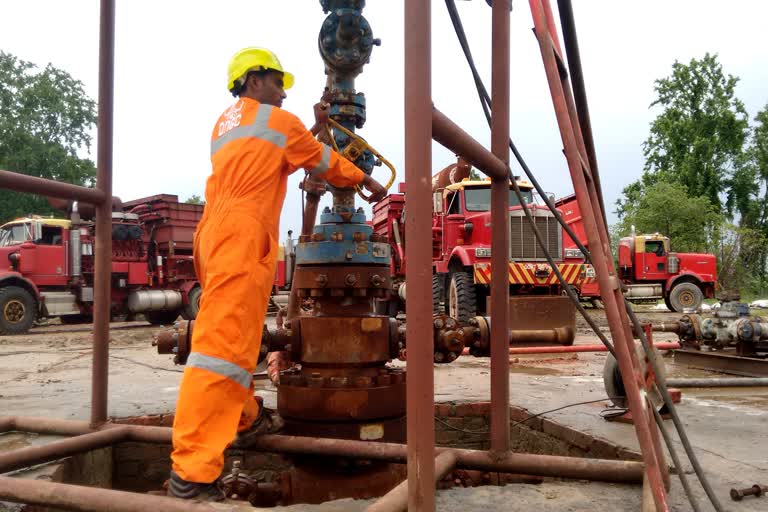New Delhi: In one of the last reforms in the oil and gas sector, the government is set to free up pricing of all domestically produced gas that would help scale up local production from fields of ONGC, OIL, Reliance and Vedanta and help create a uniform gas where the fuel is freely tradable on exchanges.
Government sources said that discussions on lifting price restrictions on locally produced natural gas have started that would culminate into a decision about the timing of the new reform initiative. The current timing is considered ideal to free up gas prices as the oil market and prices have remained stable.
A panel led by the Niti Aayog vice-chairman has also suggested free-market pricing for natural gas produced from all fields to boost domestic output.
"We are looking at all proposals on bringing out domestic gas production from pricing regulations. A cabinet note proposing the changes would soon be finalised so that new system is put in place at the earliest," said a government official privy to the development.
However, any move to completely lift price regulation in the gas sector will be done gradually as has been suggested by the Kelkar Panel.
This would mean that the present system of regulated gas pricing for domestic production would continue for at least three more years but during the period producers would be given freedom to sell a portion of the total output under negotiated pricing deals (market-determined) with their customers.
The NDA government's reform initiatives has already allowed free gas pricing for products coming from small and marginal blocks, difficult high pressure/deepwater blocks and all production coming under the newly bid blocks under the Hydrocarbon Exploration Licensing Policy (HELP).
But the pricing and marketing of gas from Pre-NELP exploration blocks and those under New Exploration Licensing Policy (NELP) is still regulated. This regulation will be lifted gradually, once the new policy is approved.
The current gas pricing method for pre-NELP and NELP blocks is based on a 2014 government-set formula that takes average rates from global trading hubs to determine domestic prices twice a year - in April and then in October.
Under the formula, the current gas price is at $3.23 per million metric British thermal units (mmBtu). Gas producers have been critical of this low pricing that adversely impacts investments in the upstream sector.
"It's about time when government frees up gas pricing if it is serious about developing a gas-based economy in the country. Apart from lifting domestic pricing restrictions on domestic gas, the government should also do away with price caps for market-determined gas prices.
This would enable market forces and competition to offer the best available prices to consumers," said a senior official of a private sector oil and gas explorer who did not wish to be named.
At present, producers can charge market rates for gas from deep-sea and other difficult fields but rates must stay below a government-prescribed ceiling that's linked to the prices of alternative fuels. The price ceiling is currently at $8.43 per mmBtu. The new policy will look into this ceiling price as well, sources said.
India is looking at investor-friendly policies in oil and gas sector to attract investments that has remained miniscule for last several years. Due to this, domestic oil production has stagnated while gas production has not picked up in a big way.
In fact, domestic gas output shrank by 1.5 per cent in the April-September period of FY20 pushing up the demand for expensive imported liquefied natural gas. The government is aiming to increase gas production by two-and-a-half times by 2030, which would help raise the fuel's share in the country's energy mix to 15 per cent from the current 6 per cent.
At present, out of 310 exploration blocks awarded so far under various bidding rounds (discovered field, pre-NELP & NELP), 189 blocks/fields are operational. Seventeen blocks under nomination are being operated by ONGC and OIL.
Petroleum Exploration Licences (PEL) for domestic exploration and production of crude oil and natural gas were granted under four different regimes over a period of time: nomination basis - PEL, Pre-NELP discovered field, Pre-NELP exploration blocks and New Exploration Licensing Policy (NELP).
As many as 117 companies are operating in these blocks post the ninth NELP round. This has at least 11 public sector undertakings, 58 private firms, and 48 foreign companies.
Read more: Final decision on revising GDP base year to be taken within 2-3 months: Chief Statistician



